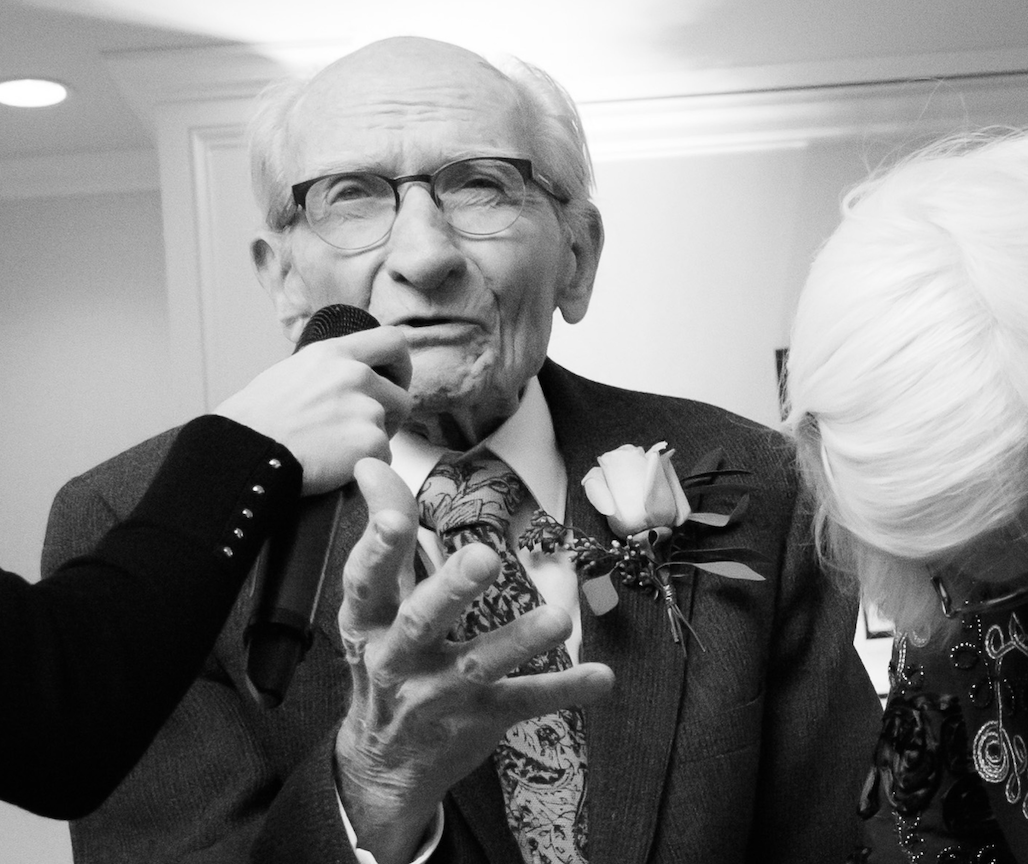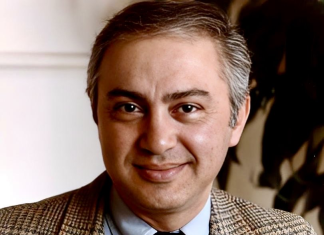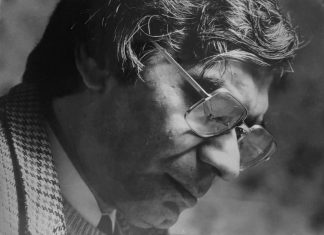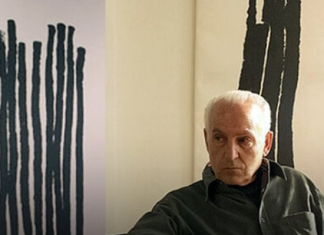By David Irvine
It is with great sadness that we let you know that on the eve of Easter Sunday, and a day after his 99th birthday, our father J. Richard Irvine passed away. He will be deeply missed by his children, grandchildren, great grandchildren, and many of you whose lives he has touched all these years.
J. Richard was a Christian missionary and world traveler; WW II veteran; educator, Headmaster of Community School in Tehran Iran and founder of Iranzamin Tehran International School and the worldwide International Baccalaureate; musician; lover of truth, life-long learning, adventurous long hikes through high mountains, safaris through the Serengeti, long train trips across western and eastern Europe, and exploration of ancient spaces from Persepolis to Athens, Rome, and a multitude places far and near (grand or humble, he enjoyed them all). He was also an avid admirer of poetry, the devoted husband of Mary Ann, and patriarch of the Irvine Clan.
He came from humble beginnings. He was born in Kannapolis, North Carolina on April 15, 1923, to John S. Irvine of Georgia and Helen Peterson of Denmark. From humble beginnings, J. Richard Irvine went on to live a full life.
At nine years of age, during the Great Depression, his parents separated. J. Richard and his younger brother Al were placed in a children’s home in Trenton, New Jersey. He never described that time negatively. He said that he would come and go as he pleased, spending many days in the library reading.
When the children’s home closed around 1935, Edward and Delores Fogg became his foster parents. They owned a farm in Lower Alloways Township, New Jersey. He described his early life in this way: “It was several miles from the country railway station to the farmhouse where I grew up. I had always enjoyed the walk home from school, the taste of winesap apples in the old orchard on crisp fall afternoons, and the warmth of the lamp in the kitchen window as I rounded the last curve in the path and the gathering darkness of an early autumn evening made home-coming especially sweet.” -J. Richard Irvine
He went to high school in Bridgeton, New Jersey where he met and fell in love with Mary Ann Cornwell. Mary Ann’s mother, Lily, was from a higher strata of society and was not so happy with this boy, who smelled like a farm, hanging around all the time.
After graduating from high school in 1940, both he and Mary Ann went to Trenton State Teachers College. Both loved singing and music. His college was interrupted when Pearl Harbor was attacked. J. Richard and a couple of his buddies went down to sign up for pilot training in the Army Air Corps. He was not accepted because he had a slight hernia from a recent slide down the outside of a grain silo, hitting the bottom lip with his stomach. He ended up enlisting in the army as a private in The Black Hawk 86th Infantry Division. With only a few days of leave, he and Mary Ann were married April 7th, 1945.
True to that “silent generation,” J. Richard never talked much about the war. All of our lives we only heard a handful of stories situated in the rubble of French and German towns, as if he was taking a stroll in the countryside. He said he never saw combat. However, we know that the Black Hawk Division set out from Le Havre, France to Germany where they straddled the Cologne on a 23-mile front with raids and patrols against German forces. They battled across the Rhine river. They helped close the Ruhr Pocket. From there, they marched down into Bavaria. Where he was in all of this combat, he never said. In his words, it was always him, with only one or two of his buddies, walking peacefully “here…or there…”
The Black Hawk Division was called back to the US in preparation for deployment to the Philippines where they were to perform mop-up operations for any combatants left on the island. Again, J. Richard told no stories of battle or combat; he just described lazy days in a hammock, reading books. Records show that the now Captain Irvine instructed “The History of Civilization” at the Philippine Institute.
After returning from the war, he resumed his studies at Trenton State Teachers College. While there, his first son, Jack, was born. After receiving his BS in 1948, J. Richard spent the next three years teaching English at Dunellen High School, Dunellen, New Jersey. At the high school he directed theater productions including “You Can’t Take It With You,” and “Our Town.” His second son, Marc, was born in 1949. In 1950 he got his M.Ed. from Rutgers University.
J. Richard, Mary Ann, and their two young boys joined the Presbyterian Mission in May of 1951 and set off for a land unknown. The family departed the US on a KLM Lockheed Constellation for Amsterdam to Tehran, Iran. They arrived on Mary Ann’s birthday “…into the upheavals of Iranian Prime Minister Mohammad Moassadegh’s effort to assert the authority of the Majlis (Parliament) over the Monarchy. We arrived in Tehran in August of 1951. In March of 1951 the Fedayeen Islam (Devotees of Islam) had assassinated Iran’s previous Prime Minister Ali Razmara. The Communist Tudeh Party supported extending Soviet influence in Iran beyond an already established presence in Azerbaijan and along the Caspian Sea…Community [School] successfully weathered the upheavals of the Mossadegh era.” -J. Richard Irvine
Thus began J. Richard’s appointment as Headmaster of Community School and the beginning of his family’s emergence into and adoption of Iranian culture. “Community School was a ‘Little United Nations.’ English was the language of instruction. French and Persian were taught as part of a curriculum which followed the Calvert System for homeschooled families.The school enjoyed the service of teachers from several countries.” -J. Richard Irvine (2009)
In 1952, J. Richard and Mary Ann lost their second son, Marc, to pneumonia. Four months later, their third son Tom was born. The next year, their fourth son, David, was born, and two years later Bob came along.
Almost a decade later, the year the first Ford Mustang was produced and Aretha Franklin released “Unforgettable,” J. Richard and Mary Ann had an unforgettable addition to the family. They were surprised with a P.S. (a “postscript”) as Mary Ann often said, another baby on the way. All were doubly surprised in September when their little princess was born! After five boys, they now had a girl – Kate.
Over the years, J. Richard and family returned to the United States several times for his graduate studies at Rutgers and Princeton. In the 1960’s, he and others around the world were planning the International Baccalaureate (IB). The Presbyterian Mission did not permit Community School to become a founding member of the IB so in 1967, J. Richard and Mary Ann resigned. With the encouragement and help of many dear Iranian families, Iranzamin Tehran International School was founded, one of the first seven schools to launch the International Baccalaureate.
As J. Richard wrote in 2009, “Iranzamin, having been licensed for the International Baccalaureate by Iran’s High Council of Education, was made a founding participant in the International Baccalaureate Organization. Other founding IB schools were the Geneva International School, Atlantic College in Wales, the United Nations International School in New York, the Lycee International de St. Germaine in France and the Goethe Gymnasium in Germany. The International Baccalaureate curriculum, culminating in a set of examinations, qualified successful secondary school graduates for admission to colleges and universities wherever they wished to study, including enrolling in higher education in Iran by virtue of the High Council of Education’s adoption of the International Baccalaureate.” -J. Richard Irvine
Iranzamin flourished into the 1970s until the onset of the Islamic Revolution. At its height, the school had more than 1,450 students from 50 countries and over 110 staff.
J. Richard described the effects of the tumultuous days of the Iranian Revolution:
“By the late 1970s, enrollment at both Community and Iranzamin had increased to about 1,500 in each school. Iranzamin was graduating classes of as many as fifty students holding IB Diplomas. However, beginning in 1978, as the Islamic Revolution developed, the number of students and faculty members gradually decreased. More and more people left revolutionary Iran. There were fewer responsible teachers to replace those who left and fewer tuition-paying families to sustain an educational institution.
In 1979, Community School, located on Kuche Marizkhaneh just off Khiabani Jaleh, was invaded, occupied and expropriated by armed revolutionary neighbors. Its library was arbitrarily dismembered, its books, educational materials and equipment commandeered, and its people and program displaced. The School relocated to a property in Shemiran which had housed the German Embassy. Over the years I had continued to enjoy Community’s sports and musical productions, and its graduation ceremonies. It was a bittersweet experience to see Community’s last senior class receive their Diplomas in June of 1980.”
“In response to my inquiries, Iran’s Revolutionists designated a Revolutionary Committee to provide security for Iranzamin. Although Ministry of Education officials urged Mary Ann and me to stay on, we were unable to conduct the school in a manner consistent with its emtiaz (license). Mary Ann could not teach music which had been banned by the Revolutionary Authorities. Teaching subjects like art and biology presented problems in this revolutionary Islamic setting. Mary Ann replaced a departing Elementary School Principal.
There were so many restrictions on education that Mary Ann resigned and left Iran in December of 1979 to join our fifteen-year-old daughter Kate who, because of the uncertainty in Iran, had been left in August of that year with her eldest brother in Connecticut.”
“Iranzamin graduated its last International Baccalaureate Class in June of 1980, its fifteen graduates all holding IB Diplomas. Subsequently Iranzamin’s status with the International Baccalaureate Organization was allowed by the Ministry of Education to lapse: its Language Laboratory was moved to Iran’s Parliament Building and its library (including music) was burned in the school courtyard. With the establishment of the Islamic Republic of Iran, expatriate teachers who had continued through the graduation of 1980 departed Iran.
Foreign wives came to make up a large part of the school’s faculty. With the requirement that women teachers must wear the hejab (the head scarf) many female teachers left the school. In following years the school continued under a Headmaster designated by the Ministry of Education.”
“A cherished experience has been overshadowed by a competing claim for hearts and minds, and, as happened with the Cheshire Cat in Alice’s Adventures in Wonderland, the form of these schools has slowly disappeared leaving the delightfully companionable smiles of former students for our enjoyment and appreciation.”
“It is an extraordinarily remarkable blessing to have enjoyed a share in this venture and to enjoy the affectionate familial friendship of men and women I knew as my students at Community and Iranzamin Schools. My Community School predecessor, Commodore Fisher, had it right when he observed that it has been our students who transformed what might have been ordinary schooling into a humane, affectionate and loving community. All of which brings engagingly to mind Saadi’s memorable words, “Children of Adam are all members of the same body…”, Shakespeare’s “One touch of nature makes the whole world kin,” and the words of the Gospel of John, chapter 8, verse:32, once found over Community’s main entrance, “You shall know the truth, and the truth shall make you free.”
Reflecting on his time in Iran, J. Richard wrote “Looking back over this odyssey, I am astonished at the ways of Providence which picked up two school teachers from New Jersey–my wife Mary Ann and myself– set them down in a strange land, and made that land their home.”
After a lifetime of work and home in Iran, J. Richard and Mary Ann finished out their working years as follows:
- 1980 – 1981 Consultant, Amman International School (Amman, Jordan)
- 1981 – 1984 Headmaster, International School Moshi (Moshi, Tanzania, East Africa)
- 1984 – 1986 Headmaster, Alan and Stevenson School, Manhattan (New York)
- 1986 – 1988 Headmaster, American School in Greece (Athens, Greece)
- 1989 Retirement in Pine, Arizona, made up of special times filled with their grown children and grandchildren.
The following mindset enabled our father to navigate revolutions, upheavals, and difficult times: “As Iran’s beloved national poet Hafez wrote, “Peace in two worlds is the merging of two paths, fairness with friends, fellowship with enemies.” Rumi wrote, “Out beyond conceptions of right and wrong there is a clearing. I’ll meet you there.” America’s iconic J.F.K. said, “Let us never negotiate out of fear, but let us never fear to negotiate.” -J. Richard Irvine (2009)
J. Richard is survived by his children John (Leslie), David (Deana), Robert (Ruth Ann), Catherine (Theodore) Deddens; sixteen grandchildren; twenty-two great-grandchildren; daughter-in-law Diane Irvine; and by three nephews. He is predeceased by his wife Mary Ann, his parents John S. and Helen, brother Albert, and sons Marc and Thomas.
Many of you have stories and memories of both J. Richard and Mary Ann.
We, their “Irvine clan,” would love it if you would share them with us. You may email them to David Irvine at irvine.dm@gmail.com.
For those who would rather send a real letter or card, you may do so to:
David Irvine
382 Cherokee, Flagstaff AZ 60005.






